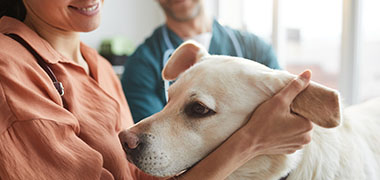
This role has a moderate level of AI exposure. AI can enhance efficiency for some tasks, but this job still relies on human skills and decision-making.
Explore all careersA Wildlife Rehabilitator cares for injured or orphaned wildlife, providing medical treatment and rehabilitation to prepare them for release into their habitats.
Get qualified to work as a Wildlife Rehabilitator with a course recognised across Australia. Speak to a training provider to learn more.





Browse occupations related to Wildlife Rehabilitator



If you're looking to start a rewarding career in wildlife conservation, consider enrolling in one of the available Wildlife Rehabilitator courses in Windsor. The area offers a variety of training options, including the popular Certificate III in Wildlife and Exhibited Animal Care ACM30321, which is ideal for beginners eager to make a difference in animal welfare and conservation. Additionally, for those with prior experience, the Bachelor of Science (Animal Biology) course provides an advanced understanding essential for this field. This balance of beginner and advanced courses means you can find the right fit for your qualifications and career aspirations.
Windsor is home to reputable training providers, including the Taronga Training Institute and Deakin University. These institutions are known for their comprehensive wildlife courses that prepare students for various roles in the wildlife care sector. By choosing a course from these esteemed providers, you can ensure that you receive high-quality training that is recognised in the industry.
Upon completing a Wildlife Rehabilitator course in Windsor, you may be interested in pursuing various job roles that share a common focus on animal care and welfare. Potential career paths include becoming a Pet Groomer, Animal Attendant, or even a Zoo Keeper. Each role offers the opportunity to work closely with animals and contribute positively to their wellbeing, ensuring that your passion for wildlife can be fulfilled.
Moreover, exploring related fields of study can further enhance your skill set in wildlife conservation. Consider delving into Animal Welfare and Veterinary courses, or more specialised Animal Care programs. As you embark on your journey through Wildlife Rehabilitator courses in Windsor, the opportunities in the vibrant community of Windsor are limitless, offering a pathway to a fulfilling career dedicated to aiding wildlife and enriching their habitats.